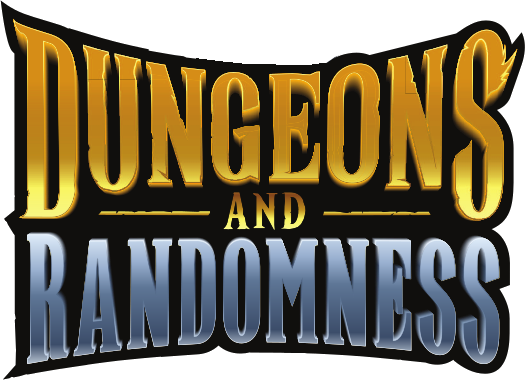Railroading Gets a Bum Rap
You may know me as a consummate player of tabletop roleplaying games (having been on nearly every Patreon game for D&R… oh yeah, it’s Susan btw), but before I joined the cast of D&R, I was the designated DM/GM for my group of in-person friends.
I’ve DM’d 4th Edition games, 5th edition, Call of Cthulhu, Alien, Buffy the Vampire Slayer, Inspectors, Labyrinth Lord, and I’m sure there’s some I’m forgetting. And yes, I know I should’ve used “GM” for anything but D&D, but I didn’t want to write out two separate sentences.
Wait.. I just did. Darn it!
Anywho, my point is that having both been a player and a DM/GM, I feel that “railroading” gets a bum rap with ttrpgs.
The world of ttrpgs is a magical place. You can be anything you want to be, go anywhere you want to go, and have any adventure you can imagine. But sometimes, all that freedom can get in the way of telling a good story. That's why it's useful to think about railroading: how it works and why it's useful in your game.
The DM/GM Is in Charge
Railroading is a dirty word in ttrpgs. It conjures images of a DM/GM who has their mind made up and isn't willing to listen to the players' ideas. It's been used as an insult against old-school DM/GMs who want to tell stories with railroads, instead of letting the players go where they want.
But there's another side to railroading that doesn't get talked about as much. Railroading is good for the story. It makes the game more fun. And when used properly, it can help you create memorable moments for all your players.
As the DM/GM, you are in charge of keeping the game on track. You have ultimate authority over what happens in your campaign world and how it unfolds, so you need to be able to make decisions quickly and confidently when necessary.
Your role is also to make sure everyone has fun—no matter what they're doing in the game or what kind of character they're playing.
So, why do players need a little bit of railroading?
There are a few reasons:
Players can get stuck in a rut.
It happens to the best of us.
You're playing your character and you think of something cool to say or do, but then you realize that it doesn't further the story or prevent any conflicts from happening.
Maybe you're just bored with leveling up right now and want to find some more side quests (or "fun B-quests," if you prefer), but those aren't helping either!
In situations like these, we need some direction from our DM/GMs so we can keep pushing forward with our characters' stories.
Players can get distracted by side quests.
As much as I love gaming with my friends and exploring Theria together, there have been several occasions where we’ve gotten off track by doing too many side quests instead of focusing on advancing the plotline.
Spoiler Alert: Remember OG Group 1? Jason basically had to put them on a leash to pull the story forward. I’m sure if Jason didn’t do that, they would’ve spent all their sessions focusing on side quests or arguing.
Doesn't Have to Be Obvious
Don't be afraid to use railroading, but it’s probably best to not let the players know that you're doing it.
You can subtly direct the story by using environmental or social cues, or even just using a npc. This can still give the players a sense of freedom because they'll feel like they have a choice in what direction their characters go in.
As a player, you want to feel like you're part of a bigger story. You want to feel like your actions have consequences and that they matter beyond the game session you're playing at that moment.
This is where railroading comes in—it's one way that DM/GMs can help players feel like they're part of something bigger than themselves. The railroad tracks are there for all to see; you know where they go, even if it's not where you want them to go. If the train never leaves the station, however, then why would anyone bother getting on board?
To Wrap This Up
Remember that every game is unique; there are no hard-and-fast rules for when or how much railroading is appropriate. I find when I’m playing a game or DM/GM’ing a game, the story is the most important.
Above all else, use your best judgment and remember that the most important thing is having fun with friends at the table together.



